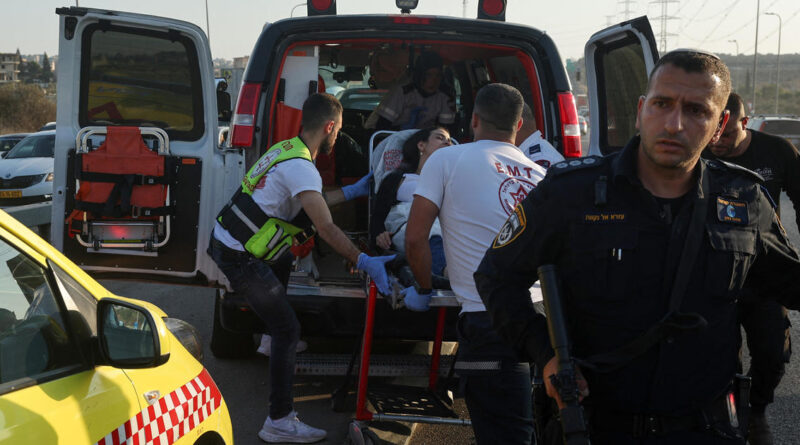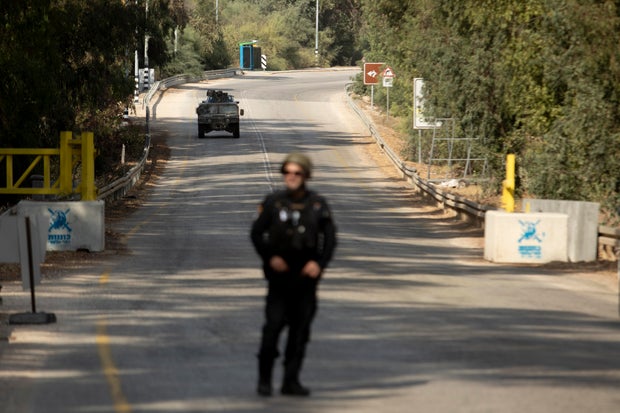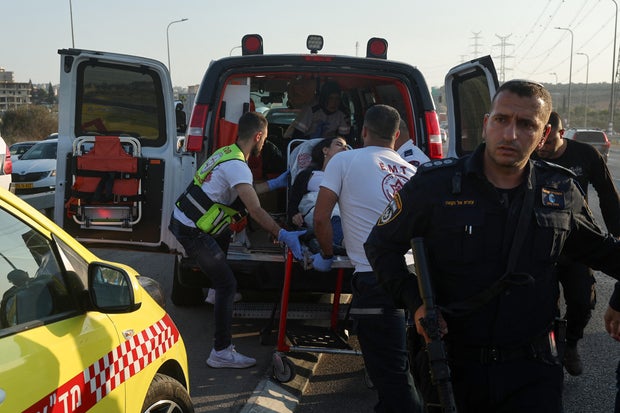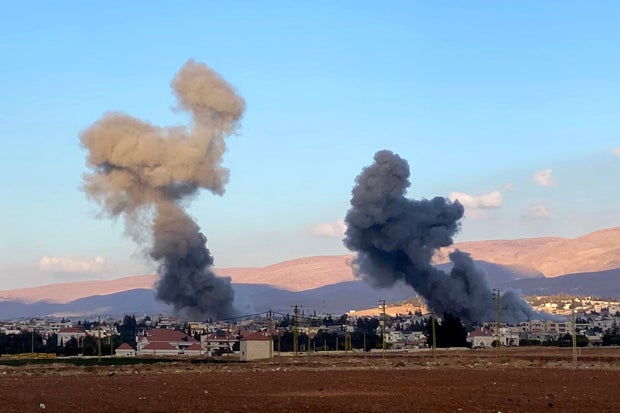Israel’s wars with Iran-backed groups grind on with rockets killing 7 in Israel, IDF airstrikes in Syria
Tel Aviv, Israel — Rocket fire from Lebanon killed at least seven people in northern Israel on Thursday, including four foreign workers, in the deadliest of such attacks since Israel’s invasion earlier this month. The attacks on two separate locations came as senior U.S. diplomats were in the region to push for cease-fires in Lebanon and Gaza, hoping to wind down the raging wars between Israel and Iranian-backed groups in the Middle East in the Biden administration’s final months.
The Hezbollah militant group in Lebanon has been firing rockets, drones and missiles into Israel daily, and drawing retaliatory strikes, since Hamas launched its Oct. 7, 2023 terrorist attack from the Gaza Strip, triggering the war there.
Hezbollah and Hamas are ideological allies and both have long been deemed Iranian proxy groups — and designated as terrorist organizations by the U.S., Israel and many other countries.
Israel’s military said Thursday, meanwhile, that it had carried out airstrikes on targets near Qusair, a city in western Syria near the border with Lebanon, where it claimed Hezbollah had recently started storing weapons in an attempt to smuggle them into Lebanon. The Israel Defense Forces have struck border crossings between Lebanon and Syria multiple times, claiming they served as arms-smuggling routes.
Reports from Syrian news outlets said at least five people were killed in the Thursday strikes.
The conflict along Israel’s northern border escalated last month when the IDF launched a wave of heavy airstrikes across Lebanon and killed Hezbollah’s top leader, Hassan Nasrallah, and most of his deputies. Israeli ground forces then pushed into Lebanon at the start of October. Almost two dozen Israel forces have been killed in Lebanon since then, while Lebanese health authorities say the airstrikes have killed about 2,000 people across the country.
Amir Levy/Getty
The Metula regional council in northern Israel reported Thursday’s first rocket attack, which killed five people, without detailing the number or type of projectiles used.
The nationalities of the four workers killed in that attack were also not immediately known. Metula, Israel’s northernmost town, is surrounded by Lebanon on three sides and it has suffered heavy damage from rockets. The town’s residents evacuated in October 2023, and only security officials and agricultural workers remain there.
The Hotline for Refugees and Migrants, an organization that advocates for foreign workers, said authorities had put them in danger by allowing them to work along the border without proper protection. Agricultural areas along Israel’s border, where much of the country’s orchards are located, are closed military areas that can only be entered with official permission.
AHMAD GHARABLI/AFP/Getty
Not long after that strike, Magen David Adom, Israel’s main emergency medical organization, said medics had confirmed the deaths of a 30-year-old man and 60-year-old woman in a suburb of the northern city of Haifa. They also treated two other people who suffered mild injuries and were hospitalized. The Israeli military said roughly 25 rockets crossed into Israel from Lebanon as part of that volley, which struck an olive grove where people had gathered for the harvest.
Hezbollah’s newly named top leader, Sheikh Naim Qassem, said in a video statement Wednesday that the militant group would keep fighting Israel until it is offered cease-fire terms it deems acceptable. He said it has recovered from a series of setbacks in recent months, including attacks using explosive pagers and walkie-talkies that were widely blamed on Israel.
“Hezbollah’s capabilities are still available and compatible with a long war,” he said.
Earlier Thursday, the Israeli military warned people to evacuate from more areas of southern Lebanon, as airstrikes in different parts of the country killed eight people, according to Lebanon’s state-run National News Agency. Israel has warned people to evacuate from large areas of the country, including major cities in the south and east.
More than 2,800 people have been killed and nearly 13,000 wounded in Lebanon since the conflict began more than a year ago, and some 1.2 million people have been displaced from their homes, according to the Lebanese government.
SAM SKAINEH/AFP/Getty
In Israel, rockets, missiles, and drones launched by Hezbollah have killed at least 68 people, about half of them soldiers. More than 60,000 Israelis from towns and cities along the border have been evacuated from their homes for more than a year.
The U.S. and other mediating nations have been circulating new proposals to wind down the regional conflicts during the Biden administration’s final months. Negotiations on both fronts have been stalled for months and none of the warring parties have shown any sign of backing down from their demands.
Senior White House officials Brett McGurk and Amos Hochstein were both back in Israel Thursday for talks on possible cease-fires and the release of hostages held by Hamas. CIA Director Bill Burns was to visit Egypt to discuss those efforts.
Prime Minister Benjamin Netanyahu met with McGurk and Hochstein, his office confirmed in a statement, saying the Israeli leader had “thanked our American friends for their efforts” but “clarified that the main issue is not the paperwork of this or that agreement, but only Israel’s determination to enforce the agreement and thwart any threat to its security from Lebanon.”
One proposal to end the war between Israel and Hezbollah calls for a two-month cease-fire during which Israeli forces would withdraw from Lebanon, and Hezbollah would end its armed presence along the country’s southern border, two officials familiar with the talks told The Associated Press on Wednesday.
But Israel is unlikely to trust U.N. peacekeepers and Lebanese troops — both of whom it accuses of failing to prevent Hezbollah from entrenching in the area over the last decade — to keep Hezbollah out of a buffer zone it has now reestablished in southern Lebanon. It wants the freedom to strike the militants if needed. Lebanese officials want a complete withdrawal.
Separately, the U.S., Egypt and Qatar have proposed a four-week cease-fire in Gaza during which Hamas would release up to 10 hostages, according to an Egyptian official and a Western diplomat.
But Hamas still appears unwilling to release scores of hostages without securing a more lasting cease-fire and a full Israeli withdrawal from Gaza, even after the killing of its top leader, Yahya Sinwar. Prime Minister Netanyahu has insisted on lasting Israeli control over parts of the territory.




